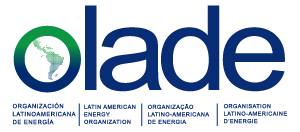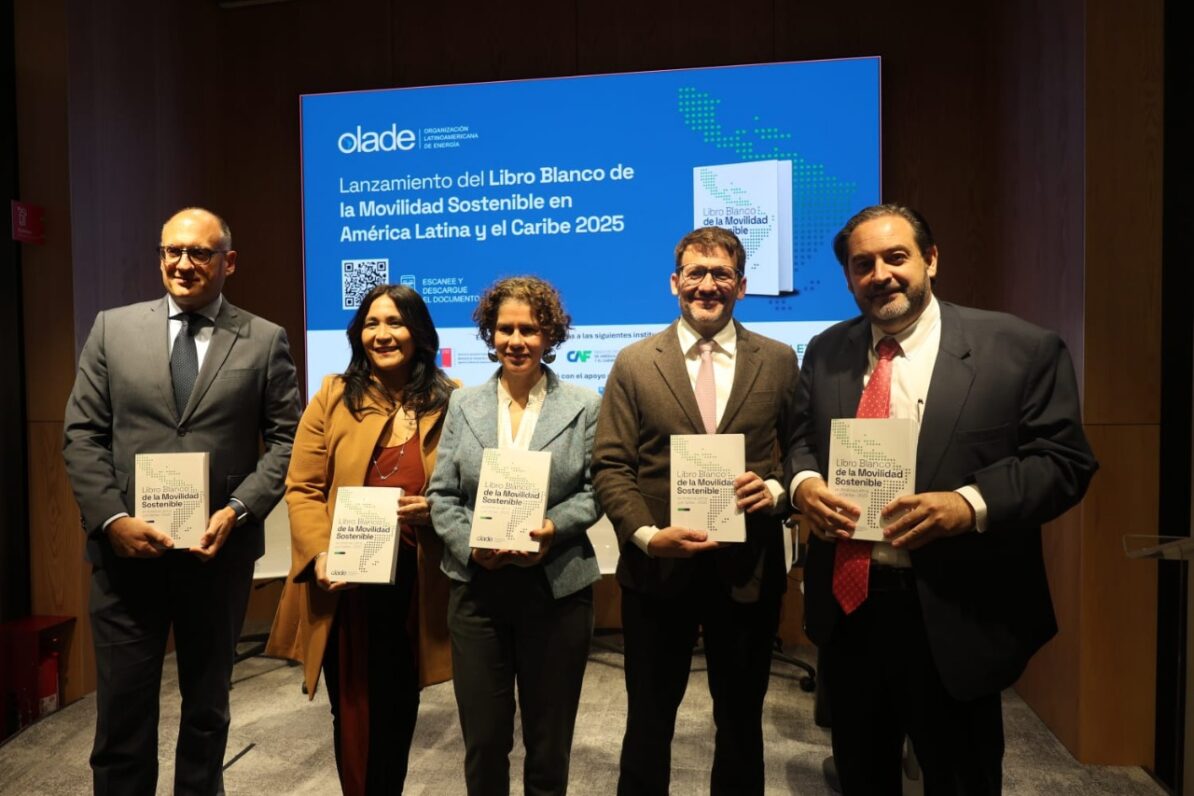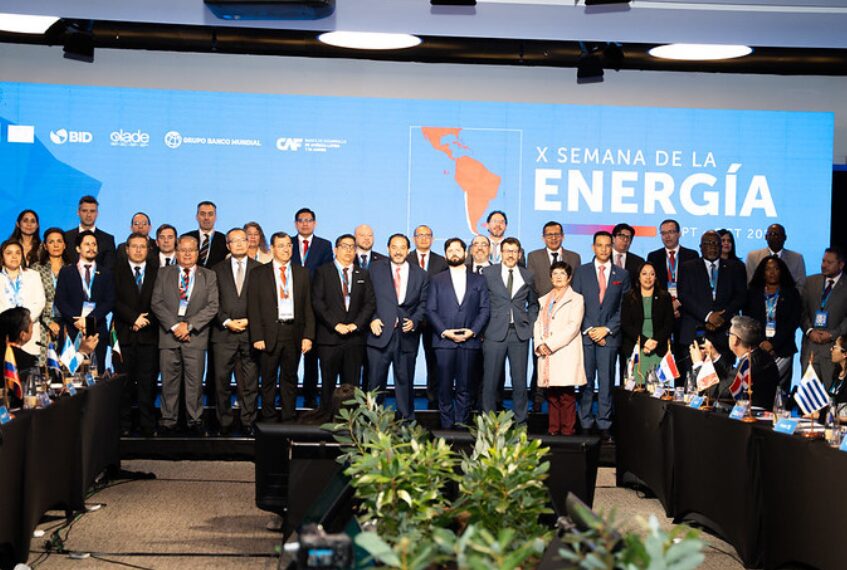In Santiago, Chile, the Latin American Energy Organization (OLADE) presented the White Paper on Sustainable Mobility, a publication that brings together data, experiences, and proposals to advance toward cleaner, more efficient, and inclusive transport systems across Latin America and the Caribbean.
The launch took place within the framework of the 10th Energy Week, organized by the Ministry of Energy of Chile and OLADE, and gathered leaders, experts, and decision-makers from the public and private energy sectors of the region.
During the presentation, Andrés Rebolledo, Executive Secretary of OLADE, emphasized that “transport represents nearly 40% of the region’s total energy consumption. It plays a central role in the decarbonization process,” adding that sustainable mobility “offers unique opportunities to drive innovation, generate green jobs, and improve quality of life in our cities.”
The White Paper shows that Chile has achieved remarkable growth in electromobility, particularly in public transport. In 2024, the number of light electric vehicles tripled compared to 2023, consolidating the country as one of those offering the strongest incentives in the region.
According to the report, in 2022, Chile had 800 electric buses and 10 depots, and it is projected that by 2025 the country will reach 4,406 units and 55 charging stations, bringing 68% of its public fleet under electric technology. This progress is the result of a progressive public tendering model, whose latest round requires 100% of buses to be electric.
The document not only highlights progress in electromobility, but also proposes a comprehensive vision of sustainable transport, encompassing everything from public transport electrification to the use of biofuels, sustainable aviation fuels (SAF), and green hydrogen.
At the regional level, the fleet of light electric vehicles grew from 17,541 units in 2020 to 444,071 in 2024, positioning Chile as the seventh country in Latin America in total electric vehicle adoption. Brazil leads in absolute numbers, with about 125,000 units sold in 2024, more than double compared to 2023. In relative terms, Costa Rica (15%), Uruguay (13%), and Colombia (7.5%) are the countries with the highest electric market share.
In per capita terms, the five countries with the highest number of light electric vehicles in circulation by the end of 2024 were Uruguay, Costa Rica, Brazil, Guatemala, and Mexico. This growth is directly linked to effective public policies, such as fiscal incentives, tax exemptions, and direct subsidies, which have boosted the market—particularly in the private vehicle segment.
The report also reveals a steady expansion of electric public transport in the region. As of December 2024, Latin America and the Caribbean had nearly 6,700 electric buses, representing a 32% increase over 2023 and an average annual growth rate of 33.5% since 2017. Chile and Colombia lead this transition, followed by Brazil and Mexico. However, other countries such as Belize, Costa Rica, and Paraguay show slower progress, reflecting regional disparities that need to be addressed.
The White Paper on Sustainable Mobility emphasizes that the challenges go beyond the adoption of electric vehicles and require accessible and standardized charging infrastructure, robust regulatory frameworks, sustainable and scalable financing, and integrated urban and energy planning.





